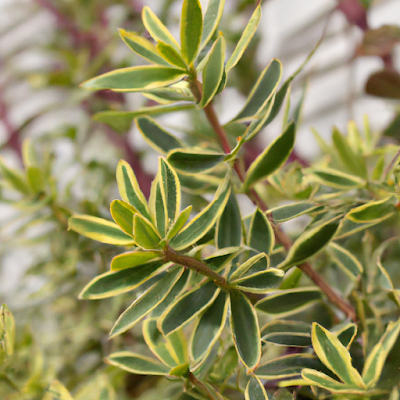Chives, Allium schoenoprasum
What are the health benefits of consuming chives?
Consuming chives can offer several health benefits. Here are a few:
1. Nutrient-rich:
Chives are packed with essential vitamins and minerals such as vitamin C, vitamin K, vitamin A, and folate. These nutrients contribute to overall well-being and support various bodily functions.
2. Antioxidant properties:
Chives contain antioxidants that help protect the body against harmful free radicals. These antioxidants may reduce the risk of chronic diseases and support a healthy immune system.
3. Anti-inflammatory effects:
Chives possess anti-inflammatory properties, which can help reduce inflammation in the body. This may be beneficial for individuals dealing with conditions such as arthritis or inflammatory bowel disease.
4. Digestive health:
Chives are known to aid digestion. They contain dietary fiber, which promotes healthy bowel movements and prevents constipation. Additionally, chives have antibacterial properties that may help maintain a healthy gut flora.
5. Cardiovascular support:
Research suggests that consuming chives may have cardiovascular benefits. They contain compounds that help lower blood pressure and improve blood circulation, thereby reducing the risk of heart disease.
6. Potential cancer-fighting properties:
Some studies indicate that certain compounds found in chives may inhibit the growth of cancer cells. However, more research is needed to fully understand the extent of these effects.
Remember, while chives can contribute to a healthy diet, it's important to maintain a balanced lifestyle that includes a variety of nutrient-rich foods and regular exercise for optimal health benefits.
What is the nutritional value of chives?
Chives, belonging to the same family as onions and garlic, are packed with essential nutrients. They are low in calories, making them a great addition to a balanced diet.
Here is an overview of their nutritional value:
1. Vitamins:
Chives are an excellent source of vitamins A, C, and K. Vitamin A is crucial for maintaining healthy vision and a strong immune system. Vitamin C acts as a powerful antioxidant, promoting skin health and boosting the immune system. Vitamin K plays a vital role in blood clotting and bone health.
2. Minerals:
Chives contain important minerals such as calcium, iron, magnesium, potassium, and manganese. These minerals contribute to overall well-being by supporting bone health, regulating blood pressure, and aiding in various metabolic processes.
3. Antioxidants:
Chives are rich in antioxidants like flavonoids and sulfur compounds. These antioxidants help protect the body against harmful free radicals and may reduce the risk of chronic diseases.
4. Fiber:
Although chives are not particularly high in fiber, they still contribute to your daily intake. Fiber aids digestion, promotes feelings of fullness, and helps regulate blood sugar levels.
Remember that chives are usually used in small amounts as a garnish or flavor enhancer rather than a main ingredient. However, incorporating them into your meals can provide a range of nutritional benefits.
Do chives have any medicinal properties or traditional uses in herbal medicine?
Chives, known for their distinct taste and delightful aroma, do indeed possess some medicinal properties and have been used in traditional herbal medicine. While they may not be as renowned as other herbs, chives have been valued for their potential health benefits.
One notable property of chives is their high content of beneficial compounds, such as vitamins A, C, and K, as well as minerals like calcium, iron, and potassium. These nutrients contribute to overall well-being and can support a healthy immune system.
Chives also contain certain bioactive compounds, including flavonoids and organosulfur compounds, which have shown potential antioxidant and anti-inflammatory effects. These properties suggest that chives may help reduce inflammation in the body and protect against cellular damage caused by harmful free radicals.
In traditional herbal medicine, chives have been used to aid digestion and stimulate appetite. They are believed to possess mild diuretic properties and may contribute to maintaining a healthy urinary system.
While more research is needed to fully understand the extent of chives' medicinal properties, they can still be enjoyed as a flavorful addition to various dishes. Incorporating chives into your diet may provide some health benefits due to their nutrient profile and potential therapeutic properties.
However, it is important to note that chives should not replace proper medical treatment or advice from a healthcare professional. Always consult with a qualified expert before using any herb or supplement for medicinal purposes.
Overall, while chives may not be considered a primary herb in traditional medicine, they do offer some potential health benefits. Enjoy their delicious taste and aroma while potentially reaping the advantages they offer to your well-being.
Are there any potential allergies or side effects associated with consuming chives?
While chives are generally safe to consume, it is important to be aware of potential allergies or side effects that some individuals may experience. Allergic reactions to chives are rare but possible, especially for those who have sensitivities to other members of the Allium family, such as onions or garlic.
Some individuals may experience mild digestive discomfort after consuming chives, including symptoms such as bloating, gas, or upset stomach. This is more likely to occur when chives are consumed in large quantities or by people with a particularly sensitive digestive system.
It is also worth noting that chives contain a compound called allicin, which can act as a blood thinner. While this is generally beneficial for most people, individuals taking blood-thinning medications or who have bleeding disorders should exercise caution and consult their healthcare provider before consuming chives in large amounts.
As with any food, it is always recommended to listen to your body and consume chives in moderation. If you have any concerns about allergies or potential side effects, it is best to consult with a healthcare professional for personalized advice.



Comments
Post a Comment